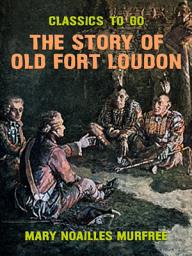Charles Egbert Craddock AKA Mary Noailles Murfree
Mary Noailles Murfree, an eminent figure in American literature, was born on January 24, 1850, in Murfreesboro, Tennessee, and lived until July 31, 1922. She carved a niche in the domain of regionalist writing under the pen name Charles Egbert Craddock. Murfree's deep attachment to the mountains of Tennessee is evident in the vivid portrayal of Appalachian life and scenery that forms the backdrop to her narratives. Her writing is distinguished by its rich description, capturing both the raw beauty of the landscape and the complexities of the human condition within it. 'The Phantom of Bogue Holauba' is one of the many works that exemplify her unique literary style. Murfree's stories were frequently published in notable periodicals, such as the Atlantic Monthly, prior to being compiled into novels. Her deft storytelling intertwines themes of nature, local dialect, and culture, often challenging popular stereotypes of mountain people by illustrating their dignity and independence. Despite writing during an era when female authors were not widely recognized, Murfree's substantial contribution to the local color movement and American literature at large is uncontestable. Her works remain significant for their authentic depictions of early American life and the burgeoning diversity of literary voices in the post-Civil War United States.

